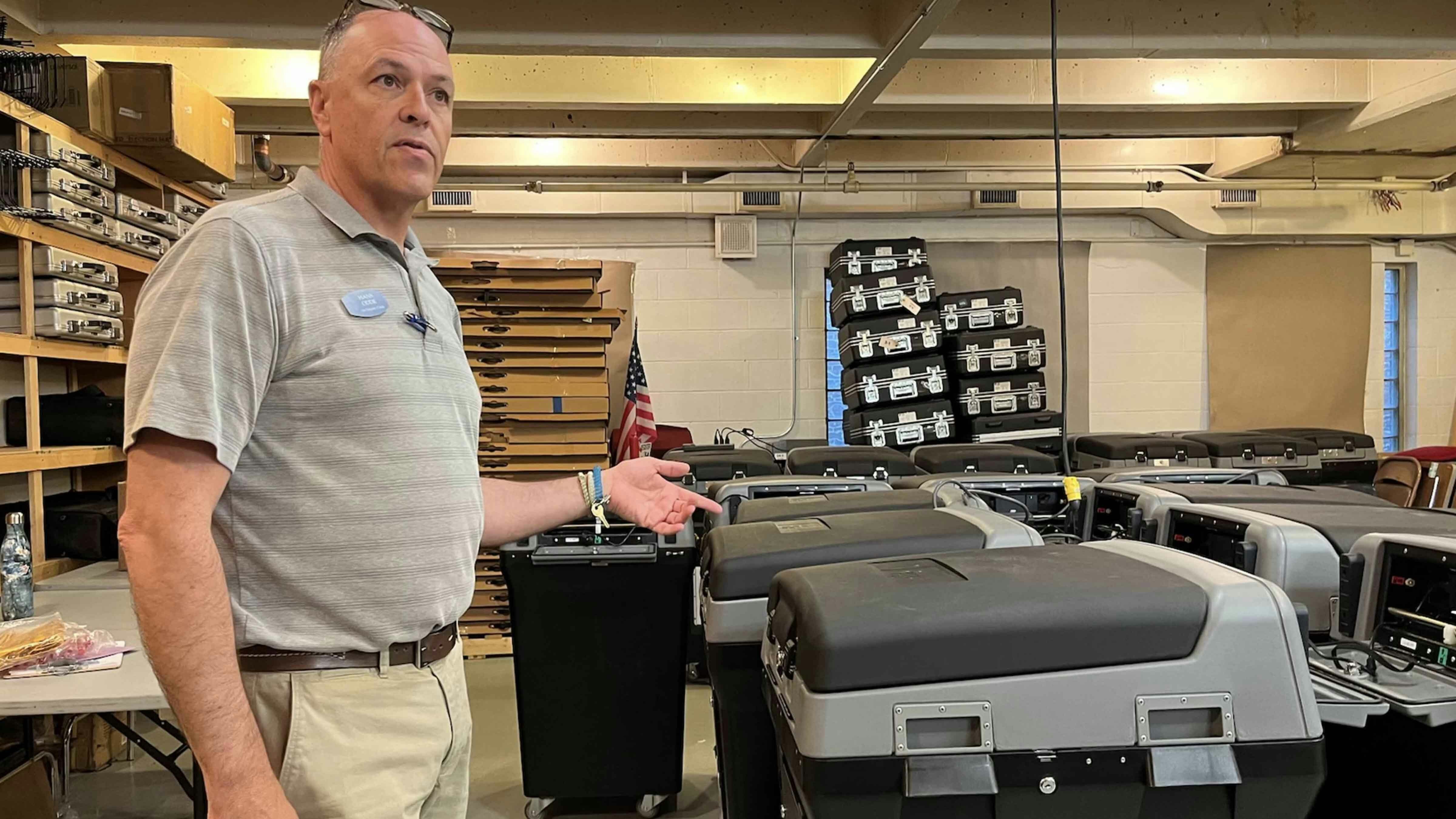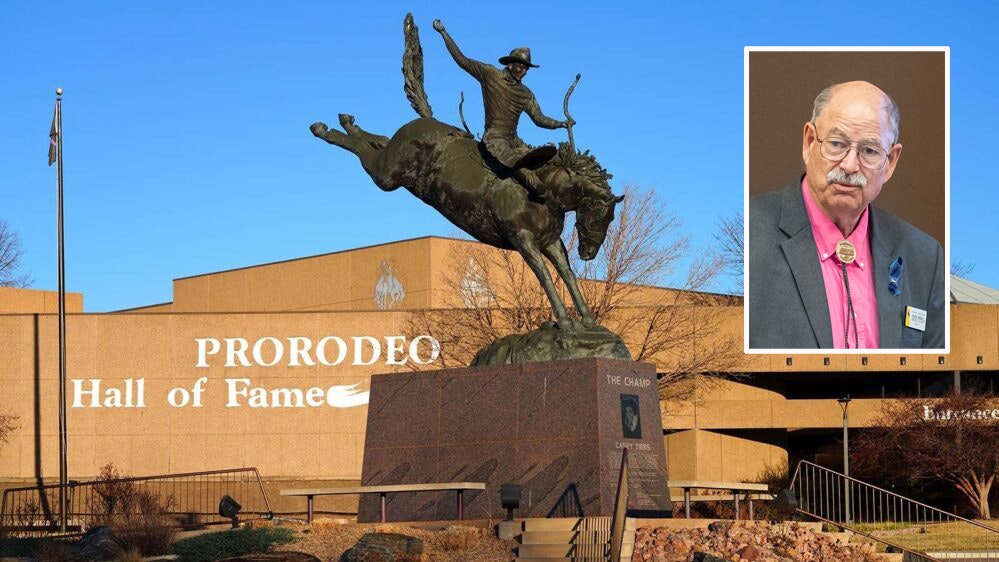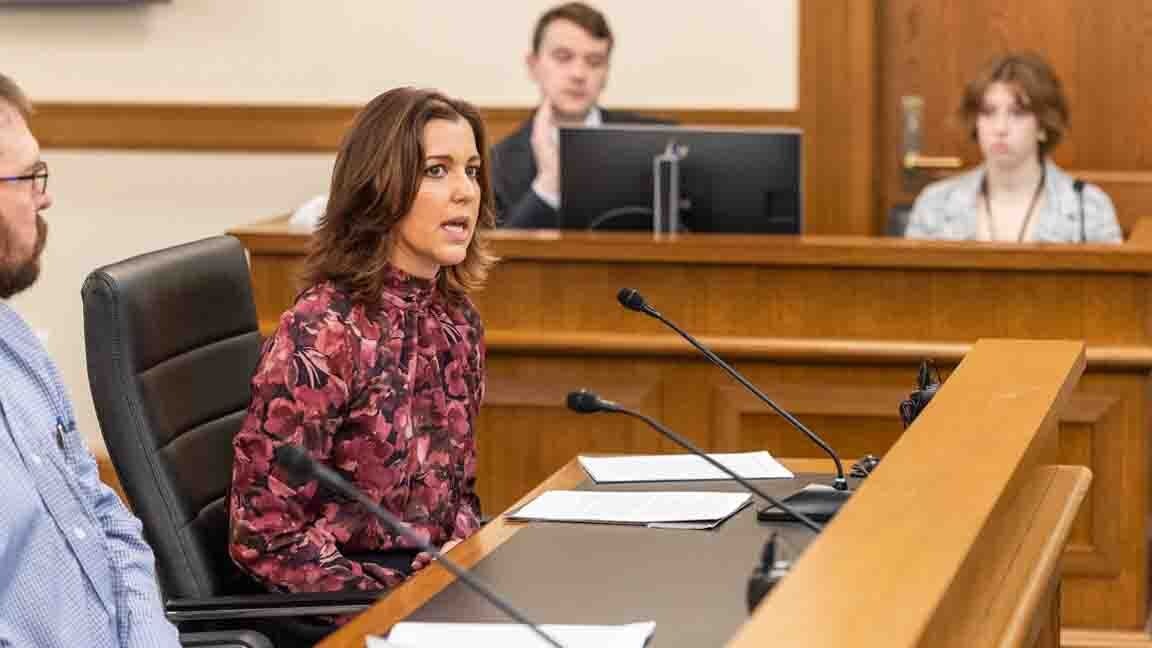Wyoming County Clerks Association President and Platte County Clerk Malcolm Ervin said the State Constitution does not allow clerks in the Cowboy State to perform election audits to the same degree that they are done in some other states.
After the 2020 election, extensive audits took place in Maricopa County, Arizona, and other key battleground areas that swung toward President Joe Biden. In Maricopa, a private organization was allowed to inspect election ballots.
“We don’t believe we can do that in Wyoming because the Wyoming Constitution doesn’t allow for ballots to be made public,” Ervin said.
On Saturday, Wyoming Republican Party Chairman Frank Eathorne criticized the state’s county clerks for not performing audits as he and others would like to see them done. He said this showed a lack of transparency.
Privacy Above All
The Wyoming Constitution states that all voters should be guaranteed absolute privacy in the appropriation of their ballots and that the secrecy of the ballot is compulsory. Ervin said the clerks have determined this to mean that ballots are to remain confidential both before and after their casting.
Ervin said even with names and other identifying factors redacted from a ballot, it could still be discovered how an individual voted based on the fact there are some precincts around the state where there are only a few registered Democrats. Also, there is the potential that someone could recognize another person’s handwriting on a write-in ballot and discover how they voted.
“That’s why we haven’t gone to the length of having a full-scale audit like you saw in Maricopa County,” Ervin said.
An effort was initiated in Park County in 2022 to have a hand counted audit of the 2020 ballots cast in that county, but it was rejected as unconstitutional by Wyoming Attorney General Bridget Hill.
Ervin believes revealing a voter’s ballot would be a major infringement of the Constitution.
“The minute we no longer have private ballots and the ability to cast a secret vote, that’s when you’re going to see election integrity seriously degrade,” he said.
Audits And Tests Already Performed
Before each election, the county clerks perform a private and public test of the election equipment.
Election staffers use something known as a “test deck,” a quantity of test ballots already filled out that staff can then use to verify the machine’s results against.
“We run those against the equipment and then verify the results came out the way they were supposed to,” Ervin said.
For the public test, residents can engage with staff and receive a first-hand demonstration on how the voting machines work. Ervin said in Platte County, they allow members of the public to not only fill out the ballots but also cast them into the machines themselves.
“So, they’re not just taking our word for it,” he said. “They actually participate in the creation of that test deck.”
Post-Election Audits
After each election, two “risk-limiting” audits are performed. This practice was codified into state law during the most recent State Legislature, an effort that was supported by Secretary of State Chuck Gray.
The first is to determine whether the equipment is still tabulating the test deck the same way it had prior to the election to make sure there has been no change to how it counts the ballots and how accurately it does so.
Election staff in each county also perform another post-election audit to ensure the equipment counted the ballots the same way it did on election day. This involves using an algorithm developed by UW to select a random percentage of ballots, and then these ballots are analyzed.
The ballots studied in these audits are kept completely confidential and are not allowed to be seen by the public at large.
Each ballot cast is assigned a random ID number through the election software used in Wyoming.
The number of ballots audited in a county is based on the difference between the winner with the lowest amount of votes and the loser with the highest amount of votes in a race and cannot exceed 5% of all ballots cast, to “have it be substantial but also so that the results would not be to the degree where it affected the outcomes,” Ervin said.
The top six races in each county are audited, which depending on the county being audited, results in 50-500 ballots that are audited. But in scenarios where there was a particularly close race with a low number of votes cast, Ervin said clerks will audit a higher number of ballots to ensure accuracy.
Ervin said the 2022 audits revealed that ballots were tabulated with 100% accuracy.
Same Goals
Ervin believes nearly all Americans aspire for free and fair elections, they just have different ways of going about it and ideas of what this should look like.
“That’s a necessity in our society, a free and fair election,” he said. “We’re doing our part to continue a tradition of free and fair elections in Wyoming.”
He’s not opposed to using examples of what has happened in other states as a cautionary tale but also wants people to know acts of election fraud are not happening in Wyoming.
“We have all the confidence in the world that our elections in Wyoming have been conducted freely and fairly and will continue to be done so,” he said.
Leo Wolfson can be reached at leo@cowboystatedaily.com.





